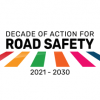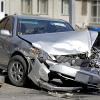Press Releases
Displaying Results 1 - 15 of 15
UNECE’s Working Party on Automated/Autonomous and Connected Vehicles has adopted the draft of a new regulation that defines provisions for the approval of vehicles with Driver Control Assistance Systems (DCAS) and provides minimum safety requirements for vehicles equipped with the Advanced Driver
The limited ability of drivers to detect and see correctly pedestrians in close proximity of their vehicle is a key cause of accidents, both for cars and light vehicles, and for heavy duty vehicles. Two new UN regulations adopted recently by UNECE’s World Forum for the Harmonization of Vehicle
A new milestone in mobility has been reached with the adoption of a proposal to extend automated driving in certain traffic environments from the current limit of 60 km/h to up to 130 km/h.
The amendment to UN Regulation No. 157 adopted today by the World Forum for Harmonization of Vehicle
A reverse warning sound is widely used to ensure safety of people around medium- and heavy-duty vehicles above 3.5 tonnes. However, until now, there has been no worldwide harmonized regulation for audible reverse warning. To reduce the risk of accidents with reversing vehicles, on the one hand, and
The number of accidents involving trucks and coaches on the road could soon be reduced with the extension of the use of Advanced Emergency Braking System (AEBS). Initially designed to improve safety on motorways, the scope of UN Regulation No. 131 will be widened to include other road contexts,
The World Forum for Harmonization of Vehicle Regulations (WP.29) has adopted an amendment to a United Nations Regulation on Automated Lane Keeping Systems (ALKS) that lays down the technical requirements for their use in heavy vehicles including trucks, buses and coaches. This step marks the first
The launch of the Decade of Action for Road Safety 2021-2030 sets the ambitious target of preventing at least 50% of road traffic deaths and injuries by 2030. To realize this vision, UNECE partnered with WHO and its sister UN Regional Commissions to develop a Global Plan for the Decade of Action,
Understanding the conditions of road crashes supports the assessment of how vehicles’ safety equipment performs, which can help to improve these systems to reinforce safety on the road. A new UN Regulation which entered into force on 30 September 2021 will introduce a major breakthrough in
UNECE’s new Transport Statistics Infocard offers a new, user-friendly country-by-country perspective on important transport topics that are needed to inform policy decisions: road safety, numbers of cars and length of railways, alternative fuel use and public transport.
Across the UNECE region
The UN Road Safety Fund (UNRSF) is launching a project to regulate the export and import of used vehicles in West and East Africa, in countries such as Cameroon, Côte d'Ivoire or Uganda . The "Safer and cleaner used vehicles for Africa" initiative will put in place requirements
Ministers of Transport and high-level officials from across the globe came to the Transport Week of the 81st plenary session of the Inland Transport Committee (ITC), to debate on cutting-edge issues, including automation and digitalization in transport, and participate in the discussion of a
Some 40 Countries have agreed on a draft United Nations Regulation for Advanced Emergency Braking Systems (AEBS) for cars. This will significantly improve road safety, especially in cities, where in the European Union alone, over 9,500 fatalities were recorded in 2016, accounting for 38% of all
Blind spots - those areas around a vehicle that the driver can't fully see by looking through windows or in conventional mirrors – are a significant cause of accidents involving lorries. This is especially the case when the truck is turning right (or left in countries that drive on the left), a
UNECE’s World Forum for Harmonization of Vehicle Regulations (WP.29) adopted on 27 June a United Nations Global Technical Regulation (UN GTR) governing the safety of hydrogen and fuel cell-powered vehicles (HFCVs). This new UN GTR represents the first international legislation in this field
Geneva
The World Forum for Harmonization of Vehicle Regulations, adopted today, at its March 2010 session, a new version of UNECE Regulation No. 100 which introduces type approval requirements for all types of electric and hybrid vehicles’ electric safety requirements .
Type approval refers to










